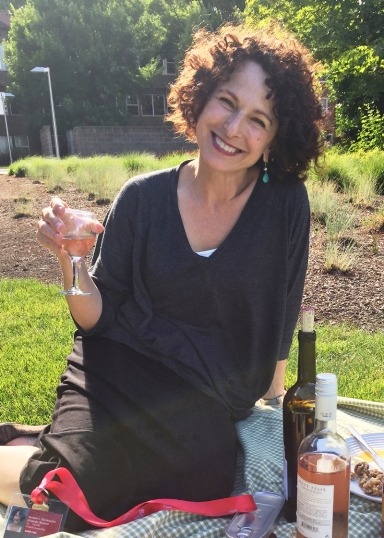
This interview with Michele is one of three posts on the site that were written for The MFA Project in fall/winter 2015, prior to the start of Primal School.
I first met Michele Bombardier at the recent Poets on the Coast conference with Susan Rich and Kelli Russell Agodon in La Conner, WA, an event in which time slows for art, women gather with their words, and poetry is a nymph dancing wildly on the Skagit River for three packed days. She was glowing so brightly I asked her out to lunch…and this interview happened. — Hannah
Tell us a little about your MFA experience. Specifically, let’s talk about pros and cons: what are some good reasons to pursue an MFA in creative writing? What are some of the challenges?
It was an agonizing decision. I have a perfectly good graduate degree and career, so I was not interested in an MFA to become a teacher; my goal was, and still is, to deepen my craft. I also felt the pressure of time. I am 55 years old, and even though I have been writing for a while now, I am relatively late to the party. My hope was that an MFA program would compress my learning curve to a steep incline.
The con is pretty simple: money. I have three college-age kids. We put one through, one just started, and one stopped but hopes to return. We are middle class. This is hard stuff. We ended up taking a loan against the house. Call me crazy.
If I didn’t get an MFA I would have continued doing what I have been doing for the past five years: taking classes at Hugo House, the community writing center here in Seattle, meeting with my writing groups, working with editors/teachers I’ve hired to review and critique my work, and attending conferences where I could, though those can get pretty spendy.
What advice would you offer to poets and students of writing who aren’t part of an MFA program? How might they structure and self-direct their writing education?
Find mentors. I took David Wagoner’s Master Poetry class multiple times at Hugo House and was incredibly grateful for those experiences. I’ve also studied with Tara Hardy, Kelli Russell Agodon, Gary Copeland Lilley and Wyn Cooper. I think it’s also important for writers to attend classes and form writing groups. The classes and groups come and go, but over time, you find your poet-siblings who will help raise your work. I love working with my friends Lillo Way and Ken Wagner, whom I met in David Wagoner’s course, and they still kick my poetic ass.

